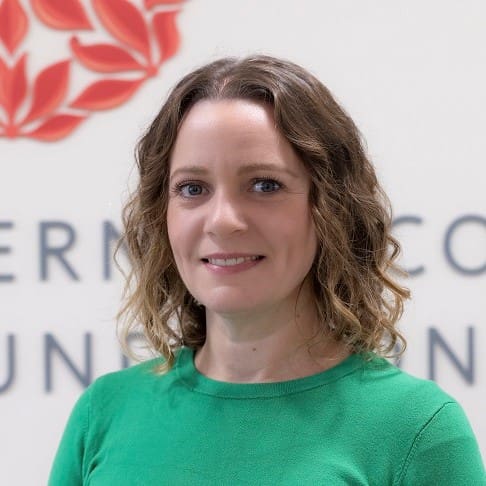Guernsey has a hidden homelessness problem, according to a major report published by the Guernsey Community Foundation today.
Commissioned in 2021 by local homelessness charity Maison St Pierre, the report by social policy researcher Alex Lemon is the result of an extended period of research and interviews with dozens of third-sector professionals and civil servants, many of whom deliver frontline services to the homeless.
The report proposes a definition of ‘homelessness’ which works backwards from the concept of being ‘properly housed’. If the report argues, that you are living somewhere that you can afford, that meets your reasonable needs (in terms of property size, condition, and accessibility), and that you are not at risk of losing at short notice, then you are properly housed. If your accommodation lacks at least two of those characteristics – affordability, adequacy, and security of tenure – you can be said to be homeless.
The report goes on to argue that Guernsey has a significant and hidden homelessness problem – one which is being downplayed, ignored, or treated as less significant than other aspects of the Island’s acknowledged housing crisis, such as the difficulties faced by first-time buyers. As Alex Lemon says in her Executive Summary, “when interviewed, professionals from across the public sector and the charitable sector […] told stories of desperate families struggling to find somewhere to live, of young people being forced to sofa-surf, of vulnerable people sleeping rough, and of newly released prisoners with nowhere to go.”
The report’s key findings include the following:
- Wages are not keeping pace with significant and ongoing increases in private rental charges. At the end of 2021, the average monthly rent in Guernsey (£1,650) was the equivalent of 78% of lower quartile earnings.
- The number of people waiting for social housing has reached a 12-year high. While they wait, the Island’s homeless population is increasingly forced to rely on a largely invisible network of expensive, poor-quality housing, leaving them vulnerable and unable to improve their circumstances – at great cost to them, and to the States.
- Eight groups of people are at particularly high risk of homelessness: the low-paid/unemployed, single parents, domestic abuse survivors, care leavers, households containing a sick or disabled person, ex-offenders, people struggling with addiction, and NEETs (young people not in education, employment, or training) who are estranged from their families.
- As emergency housing, St Julian’s House is unfit for purpose.
- Charities are struggling to deliver core services because they are drawn into helping service users fix urgent housing-related problems.
- The continued lack of a States of Guernsey definition of ‘homeless’ makes it difficult to collect reliable data. Without data, there can be no credible strategic response, no plan for cross-departmental action, no framework within which to engage with third-sector agencies, and no way to track the effectiveness of policies designed to reduce homelessness.
The report makes several recommendations that, if carried out, would reduce the harm that homelessness causes individuals and families.
The States to: accelerate the social housing build programme, make the Housing Action Group permanent, expedite the introduction of the General Housing Law, introduce housing cost guarantee schemes, define “homelessness” and improve data capture, adopt clear data sharing principles with the third sector, and consider adopting Housing First as a core policy principle
The Guernsey Community Foundation to investigate the need for a dedicated housing charity, and to launch and coordinate a housing support forum
The Guernsey Housing Association to create a new form of “interim” housing and, along with the States, make social housing policies more tenant-friendly
Action for Children to provide more training flats
Alex Lemon said, “Research suggests that the key issues driving homelessness are rising private rents, underregulated private tenancies, a lack of tenancy rights and a lack of social housing. Related problems make the overall situation worse. We’re looking at a lack of coordinated support services, an overburdened third sector and a lack of strategic focus at the government level.”
Peter Atkinson, Chair of Maison St Pierre, said, “While Maison St Pierre has been best known in the past for providing emergency accommodation to young mothers, our interests extend to homelessness more generally. Since selling our property in Fort Road we have consulted widely on where best to direct our resources, and concluded that we needed more data and up-to-date information on those who lack proper accommodation. We therefore approached the Guernsey Community Foundation because of their interest in social policy and their reputation for carrying out sound research.”
Jim Roberts, Chief Executive of the Guernsey Community Foundation, said, “This groundbreaking report should inspire renewed efforts to tackle what has for far too long been an overlooked problem. Alex hasn’t produced a report about the mechanics of the housing market, or about how the States should go about acquiring land for new housing, although obviously, those considerations are in the background. What she has done, quite rightly, is focus on the suffering experienced by families and individuals who lack somewhere safe, affordable and decent to live, and on the actions that government and the third sector can take right now to make things better.”
A limited number of hard copies are available from the Foundation’s offices at KGV or you can DOWNLOAD THE REPORT here.























